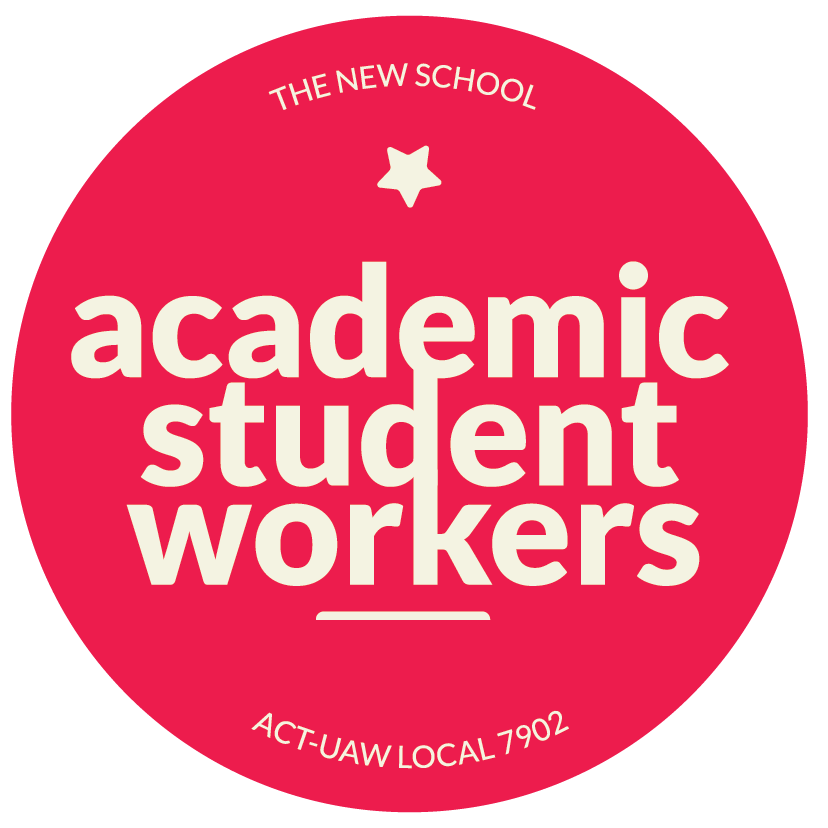As part of ACT-UAW Local 7902, New School Part-Time Faculty stand in solidarity with our Academic Student Worker colleagues who are ON STRIKE starting today after the university failed to meet their strike deadline with an acceptable contract deal. The furtherance of economic justice is a core value for our union and […]
Archive: Pre-Contract Blog
After bargaining until nearly five in the morning, the University has dug in its heels on equalizing healthcare across Masters and PhDs. They will not move on this issue, giving the union no choice but to strike. Forcing the union to wait nearly three hours, from 2AM onward, just to […]
In our last bargaining session with The New School, we finally managed to reach tentative agreement on nine non-economic articles, including: Article VI: Meeting Space: We have increased the number of membership meetings that the union can schedule. Article X: Management Rights: No change from the last contract. Article XI: […]
Before our first session of the new year we received word from the University that they were ‘refreshing’ their approach to bargaining and bringing on a new lead negotiator, Pete Jones, who handled SHENS negotiations. We were optimistic about this news and came into the session expecting to receive proposals […]
There is sadly little to report from this very frustrating session. In our November 10th session the University listed a number of articles that we hadn’t yet provided responses to. Eight of these articles are largely boilerplate with minimal changes, and are not typically discussed in bargaining a second contract. […]
Our first session open to the community highlighted many of the persistent issues that have plagued the bargaining processes. As usual, we came with substantive proposals intended to move bargaining forward. The University, in what is becoming an unfortunate pattern, responded by listing every proposal we haven’t countered on, most […]
We brought four new proposals, dealing with compensation, international student issues, job security, and expense reimbursement. We are extremely proud of these articles that, if adopted, would significantly improve living, working, and studying conditions for our members! Read about them below. Both the Union and the University have finally signed […]
We brought five new proposals today, all dealing with issues related to supporting student-workers as whole people. We delivered an opening statement illustrating the links between our well-being proposals and our success as teachers, researchers, students, and community members. Members with children delivered testimonies speaking to the lack of support […]
On Friday afternoon we met with the University for our fifth bargaining session. The union proposed three articles and two Memorandums of Understandings in relation to proposals the University has made. The University provided counter offers on Intellectual Property and Meeting Spaces. Read on for summaries of our proposals, or […]
There is a lot to share after yesterday’s eventful bargaining session. Here are some of the headlines: Zoom Compromise The University has agreed to our proposed compromise on remote bargaining attendance, so pending a written agreement we should begin live-streaming all future bargaining sessions on a rotating basis beginning. These […]

